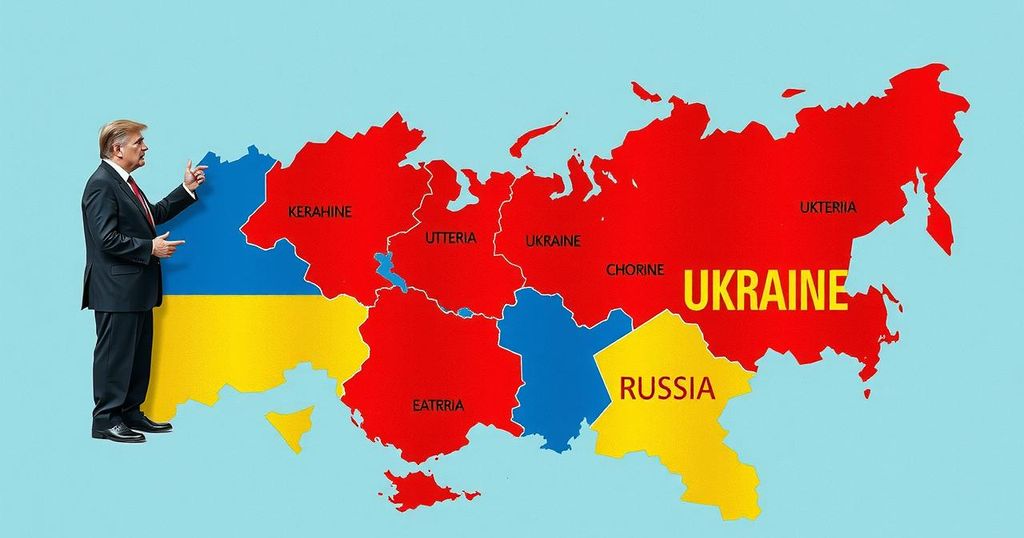Steve Bannon argues that Trump’s support for Russia stems from a strategy to counter China, which he views as the primary threat to the U.S. However, critics question the feasibility of this approach, highlighting the robust partnership between China and Russia and the complexities involved in global diplomacy.
Steve Bannon has posited that former President Donald Trump’s alignment with Russia over Ukraine may be part of a broader strategy aimed at countering China. During a recent podcast appearance, Bannon articulated that the Chinese Communist Party (CCP) has waged an economic war against the United States, and he advocates for severing ties through a strategy known as “decoupling”. Bannon views this as critical to protect American interests against Chinese dominance.
As the former chief strategist for Trump, Bannon previously emphasized the CCP as the foremost threat to Western civilization. He has repeatedly stated that Russia shares values with the West’s moral and philosophical traditions. His meeting with Aleksandr Dugin, a prominent Russian thinker advocating for a Russo-Western alliance, exemplifies this perspective. Bannon underlines that the crisis in Ukraine is secondary to the larger geopolitical dynamics at play, particularly regarding China.
Foreign policy experts are left wrestling with the implications of Bannon’s theories. While some interpret Trump’s actions as chaotic, others draw parallels to Henry Kissinger’s diplomatic achievements in the 1970s, suggesting that the goal might be to sever Russia from its alliance with China. Bannon suggests this could potentially destabilize Xi Jinping’s regime.
However, critics argue that Bannon’s strategy is flawed for several reasons, including historical context. Unlike in the 1970s when China was economically weak, it is now a formidable global power. Additionally, Kissinger possessed a nuanced diplomatic acumen lacking in current leadership. Chinese Foreign Minister Wang Yi dismissed the notion of a reverse strategy, reinforcing that the China-Russia alliance remains steadfast despite external pressures.
Wang Yi articulated that the historical foundations of China-Russia collaboration are unchanging, and that their deepened ties are a response to Western sanctions. Consequently, Chinese interests are positioned as incompatible with Bannon’s approach, emphasizing that Xi Jinping holds a strategic advantage fueled by domestic historical grievances against Russia. This implies that attempts to manipulate the relationship between Russia and China are likely futile and could lead to geopolitical miscalculations.
This year, expectations are set for Xi to honor the alliance by attending commemorations for World War Two alongside Russia, further solidifying their partnership. In light of these developments, Bannon’s theories about realigning global powers may prove ineffective as the geopolitical landscape becomes increasingly complex and interconnected.
In summary, Steve Bannon’s rationale behind Trump’s alliance with Russia over Ukraine suggests a larger strategy aimed at countering China, branding the CCP as a primary adversary. However, challenges arise in the feasibility of such a maneuver, considering historical context and the growing strength of China. The steadfast alliance between China and Russia, as underscored by recent statements from Chinese officials, indicates that attempts to play one against the other may not yield the desired outcomes. As developments unfold, the complexities of international relations will likely continue to present obstacles to simplistic geopolitical theories.
Original Source: www.independent.co.uk




